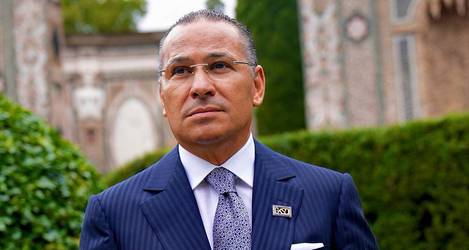by Graham Bright, Head of Compliance and Operations at Euro Exim Bank
The COVID-19 pandemic continues to have global repercussions, and our lives will be changed irreparably affecting the goods we want, the goods we need, and what constitutes luxuries and essentials.
We have seen how COVID-19 does not respect borders, resulting in appalling mortality rates, crashes and rebounds of stock markets, the general population isolated, with unclear ever-changing guidance, uncertainty and fear.
Whilst governments, health authorities and essential services tackle the effect domestically, ultimately, global trade must continue.
International trade generates trillions of dollars per year, supporting economies and huge workforces filling insatiable demand for garments, metals, foodstuffs, pharma, electronics and plastics across the globe. Now that demand has changed to include PPE - masks, testing kits, surgical gowns and medical equipment such as ventilators, and soon, hopefully, life-saving vaccines.
Whilst many companies have switched to PPE production, these are short-term strategies. When COVID-19 is beaten and eliminated, we will need to re-tool original production processes, rebuilding supply sources and re-starting import of materials and export processes for finished goods. With a new world dynamic – will the world still want or need those goods?
The outlook
The economic forecast remains grim, with US Federal Reserve Bank predictions of unemployment rates higher than the Great Depression (30%) and GDP falls of 50%. Unprecedented times indeed.
Few foresaw the sustained falls across international markets, triggering trade circuit-breakers designed to prevent panic-trading four times in 20 days. With no time to hedge, billions were wiped off company values with investors fleeing to safer market sectors.
Net effect? Car sales falling 97% from the same time last year, travel industry stagnation, air passenger and flight volumes down 90%, with fuel demand and oil prices at historic lows.
Exposing vulnerabilities
The pandemic has shown vulnerabilities in contingency planning, especially with disrupted supply chains, short-term exposure, rise in liquidity demand, ravaged cash flow, loss of workforce and potential long-term bankruptcy.
Unfortunately, it may be too late for some companies, as the online digital world will further grab market share, redefining how we shop in future with household names consigned to history.
The factors that will assist the future of trade
1. Applying appropriate collateral requirements.
Key elements in all trades are trust, identity, means and intent to pay. Buyers need collateral and funding options but are constantly hampered with unreasonable financial demands.
Many large financial institutions are charging buyers punitive rates for instruments, requiring locking of funds of up to 110% of the face value of trades for up to one year. Good for banks, but this cripples cash flow, especially with smaller values, leaving companies disadvantaged and non-competitive.
At, Euro Exim Bank, we take a pragmatic approach, looking at appropriate collateral, enabling clients where possible to transact multiple deals and therefore to trade competitively and profitably.
2. Resolving payment and liquidity issues
Access to exchange-traded currency such as US Dollars can be expensive or restrictive in emerging markets. Euro Exim Bank was one of the first regulated banks to embrace new payments technology through participation with RippleNet. Using xCurrent delivery of real-time, frictionless payments, cross-border transactions are guaranteed without multiple routing hops or necessity for traditional correspondent bank relationships.
With innovative ODL (On-Demand Liquidity) services, clients benefit from low-cost liquidity underpinned by Ripple XRP digital assets. This gives settlement with certainty, guaranteed exchange rates and immutability in terms of transfer and settlement allowing bilateral cross-border transactions in a local currency, without switching between expensive mainstream currencies.
3. Application of innovative technology
The complexity of cross-border trade flows and industry initiatives in the standardisation of processes led us early on to build a bespoke trade platform, incorporating blockchain and AI technologies. This has future-proofed our operations and enabled us to pass on benefits of speed, trust, efficiency and immutability to our clients.
4. Digitising documents
Remote working, coupled with video conferencing, have altered work dynamics and re-ignited the move towards more digital services, allowing trusted creation and distribution of electronic complex documents. We expect greater use of verified, trusted delivery in preference to current ‘wet ink’ bills of lading as physical papers in multiple copies. And who will need bricks and mortar offices?
5. Free trade agreements (FTAs)
As threats of a renewed trade war between the US and China loom, agreements in Africa (AfCFTA) and the Far East (RCEP) could hold the key to minimising a long-term recession. Designed to eliminate protectionism and isolation, FTAs allow freer movement, unencumbered by tariffs, excessive complex process or currency restrictions, encouraging trade with neighbouring partners, i.e. promoting faster, cheaper supply, where profit or economic supremacy cease to be the sole trade drivers.
To survive in these uncertain times, firms must be realistic in profit and investment outlook, exercise pragmatic management, hire professionals, listen to peers and competition. They must understand value and contribution, not just expenditure, and ultimately keep producing and delivering what customers need.
As a facilitator of global trade, Euro Exim Bank remains well-positioned and ready to work with corporates and SMEs finding innovative trade initiation solutions enabling them to deal safely and competitively in the wider international arena.
We look forward to a fast economic recovery, to a better, more charitable healthy humane world, with all citizens having access to the goods they need, at prices they can afford, as soon and as safely as possible.




